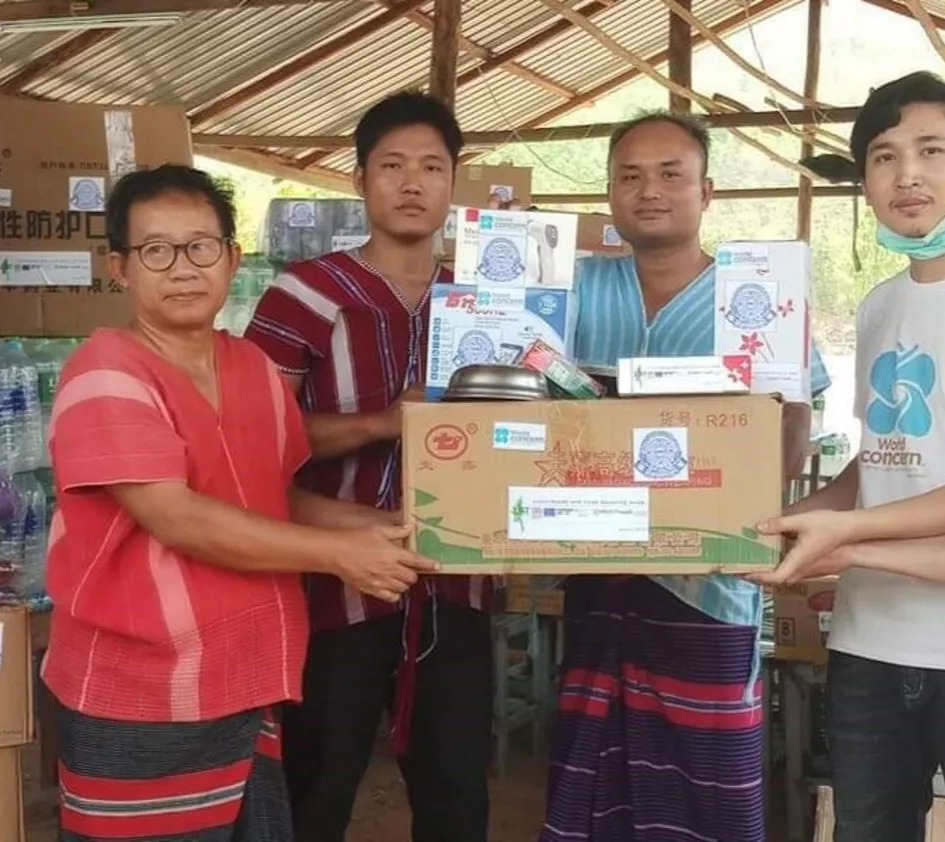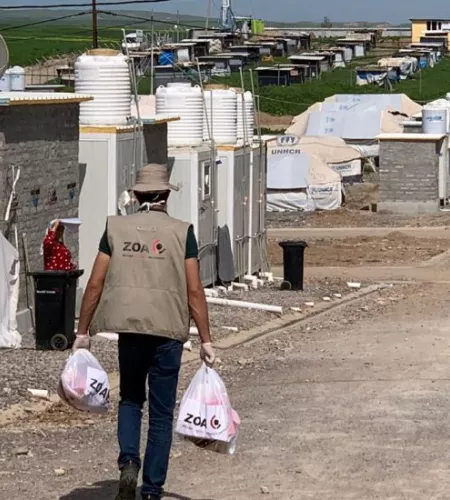ZOA responds in four ways:
1. Food support
Coronavirus measures, lockdowns and movement restrictions severely affect the supply of food and other goods; prices rise and incomes fall leaving people unable to buy food. ZOA supports these people in their first basic need by distributing food packages and cash to buy food. In situations where the local markets function and enough food is provided, cash support allows for a decentralised distribution (lower risk of contamination) and supports the local economy as well. We support people in refugee camps in Iraq, vulnerable families in Burundi and victims of violence in South-Sudan to get the food they so badly need.
"The airspace, borders, schools and shops are already closed in South Sudan. There is a ban on gathering in groups, but we can still carry out food distributions because humanitarian activities are still allowed. We are working around the clock to do as much as possible before we no longer have this opportunity," says Joop Teeuwen, ZOA Country Director in South Sudan.


